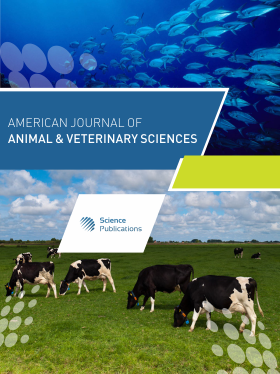Semen Quality and Artificial Insemination Efficacy Using Sericin-Silica-Phosphate-CuO Hydrogel in Thin-tailed Sheep
- 1 Department of Animal Husbandry, Faculty of Animal Husbandry, Universitas PGRI Kanjuruhan Malang, Malang, East Java, Indonesia
- 2 Department of Chemistry, Inorganic Chemistry Work Group, Faculty of Mathematics and Natural Sciences, Universitas Pendidikan Ganesha, Bali, Indonesia
- 3 Department of Natural Science Education, Faculty of Science and Technology, Universitas PGRI Kanjuruhan Malang, Malang, East Java, Indonesia
- 4 Regional Research and Innovation Agency of Malang Regency, East Java, Indonesia
- 5 Laboratory High School, Universitas Negeri Malang, East Java, Indonesia
- 6 Department of Animal Science, Faculty of Bioresources and Food Industry, Universiti Sultan Zainal Abidin, Besut Campus,Terengganu, Malaysia
Abstract
Artificial Insemination (AI) in livestock is increasingly demanded because it greatly affects the productivity and quality of livestock. AI should be supported by advanced material chemistry, especially organic-inorganic hybrid biomaterials. We aimed to produce a prototype of renewable advanced biomaterial technology in the form of Sericin-Silica-Phosphate (SER-SI-PO) hydrogel reinforced with Copper Nanoparticles (CuNPs) and its application in AI. The testing of the SER-SI-PO-CuO hydrogel prototype design is to enrich the semen diluent in AI technology on experimental sheep in a sheep-goat pen at the Faculty of Animal Husbandry, Universitas PGRI Kanjuruhan Malang so that a prototype of SER-SI-PO-CuO hydrogel that has been tested in a relevant environment is obtained. Semen was obtained from a 2-year-old thin-tailed male sheep of 30 kg. We used a completely randomized factorial design consisting of two factors (the diluent and the storage time factors). The diluent factor consisted of (A) eggyolk tris amino methane diluent at 5°C, (B) egg yolk tris aminomethanediluent at room temperature, (C) egg yolk tris amino methane diluent plus SER-SI-PO-CuO (1% w/v) at 5°C, (D) egg yolk tris amino methane diluent plus SER-SI-PO-CuO at room temperature. The storage time factor consisted of storage times of 0, 1, 2, 3, 4, 5, 6, and 7 days. The variables observed were motility, viability, and abnormality. Each AI treatment used15 samples of female sheep ready to mate. The AI success variables include Service per Conception (S/C), Non-Return Rate (NRR), and Conception Rate (CR). Semen quality data was analyzed by two-way ANOVA continued by the Least Significant Difference Test. The results showed that the SER-SI-PO-CuO addition to the diluent of tris amino methane egg yolk using a semen storage ampoule made of nano calcium silico-phosphate biomaterial had a very significant effect (p<0.01) on motility, viability, and abnormalities. The NRR, CR, and S/C values were in the good category. The addition of SER-SI-PO-CuO to the tris amino methane egg yolk diluent increased semen imperishability for up to six days at room temperature and with storage at 5°C for up to seven days, as well as the success of the AI test.
DOI: https://doi.org/10.3844/ajavsp.2025.112.123

- 101 Views
- 27 Downloads
- 0 Citations
Download
Keywords
- Artificial Insemination
- Nanocalcium Silicophosphate Biomaterials
- Semen Storage Ampoules
- Sericin-Silica-Phosphate-CuO
- Sperm Quality
